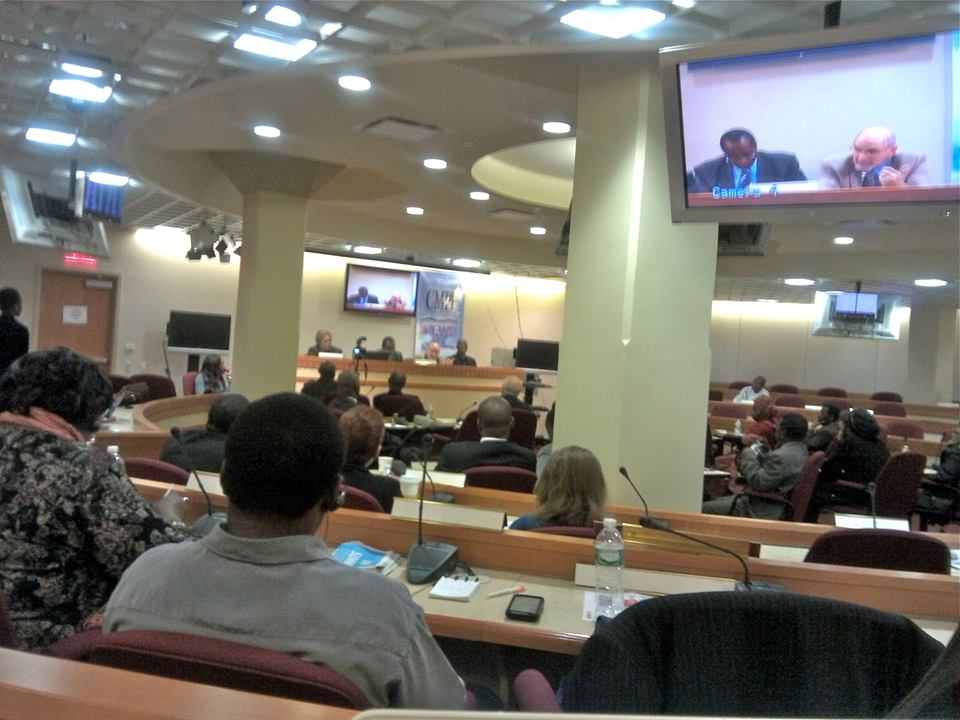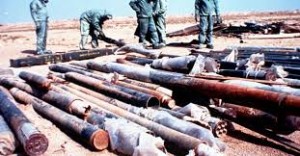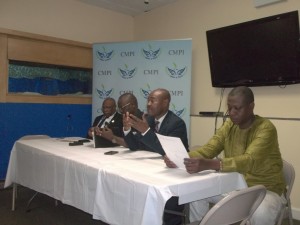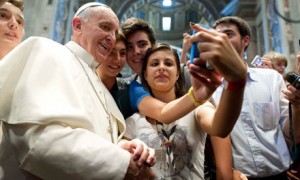By Osmond Ekwueme
50 years of democratization in Africa can be summarized in Charles Dickens lines in his 18th century novel “Tale of Two Cities”….”It was the best of times, it was the worst of times, it was the age of wisdom, it was the age of foolishness…..we had everything before us, we had nothing before us, we were all going direct to Heaven, we were all going direct the other way…”
These lines describe the central tension between love of family and love of country, on the one hand, and oppression and hatred on the other. What followed after many African countries got independence is like a tragic tale worthy of Greek mythology. Africa is still difficult to comprehend despite the honest struggles of our grandfathers and fathers to be truly free from colonialism and eager to shape their own future.
Africa now has one of the largest numbers of well-educated and well-traveled generation worldwide. Yet it seems knowledge and education of our generation seems not to be making real, positive changes. Civilization does mitigate the darker sides of humanity, but unfortunately, it does not exorcise our demons out of us. It is what it is—sad!!
I still hope that laying out the “facts” would suffice to change political minds. One based on statistics and data. Only this time the data is showing rather awkwardly and uncomfortably to politicians, so politicians ignore data and evidence. Nevertheless we should continue to make sure that facts are shared through social media. We must use these insights to inspire within us and others a course of ennobling and effective action to replace the structure that lead to bad governance with something better.

The social media should continue the good work, although I understand the limits put on the media to speak truth to power. The limits are however shaky, because the majority of the present generation grew up in the modern Internet and social networking age and therefore much more informed and savvy than the older generation. Secrecy in governance is becoming meaningless. We are in a totally new world. We know more about what is happening in North, West, East and South Africa than we ever dreamed of knowing few decades ago. Education, Internet and social networking are powerful and stunning weapon against the venality, narcissism and deliberate fraud that is becoming the new normal of our bleak African landscape. Modern communications have provided us an unprecedented deluge of unanswerable injustices in Africa.
“Modern communications have provided us an unprecedented deluge of unanswerable injustices in Africa”.
Now, I have to point out what I humbly believe is an alarming development in Africa democracy. At the start, I should make clear that I am basically an optimist. I have had the privilege of living and studying in Africa, Europe and here in USA and know whereof I speak. I have no fear for the future of Africa. I believe we can meet and conquer the problems once we summon the courage, human spirit and political will. The waves of democracy ended up so detached from, indeed at odds with facts and rationality. It was not always thus. It is in this area, the area of recognizing our problems, of understanding and choosing the right solutions that we face our greatest challenge, and it is here where my basic feeling of optimism is tempered by a few nagging doubts. The new social media has the power to start shaping events. Our dangers lie in complacency, selfishness, ignorance and irresponsibility. Really, if ignorance is bliss, I don’t want to be happy. The malady may take many years to cure. But we need to get started.
As yours truly once asked: where does one begin, pray tell? The terms have changed, but the principles have not. On one side you have the generation who look at the world around them, and see how many ways Africa is failing to live up to its potential. Africa is still a poor developing continent with the Human Development Index (HDI) less than 0.4, one of the lowest in the world and where half of the population lives in absolute poverty. We should always remember what Mahatma Gandhi said years ago: “Poverty is the worst form of violence” Please, just disregard the few wealthy minorities leaving a misleading impression of affluence in the African urban areas.
Over the past 50 years, African states (in the North, West, East and South) have witnessed inter-ethnic clashes, corruption, mismanagement, and cronyism. Comparing data across societies is risky because cultural and social differences may not be reflected. Still the instability, as we all know, was mainly the result of marginalization of ethnic groups and graft under these leaders. Instability made it possible for the military to be perceived as being the only group that could effectively maintain order, and thusly has ruled many nations in Africa for decades. Disunity comes also from creating tribal and religious animus. We are very tribal in our political outlooks. It is same in all parts of Africa; so people are always cynical about any of the arguments against their creed. I submit that allowing an African from any of the member states in African Union to move and live freely in any of the countries without visa will go a long way in diffusing tribal politics in each country. This may take some years to achieve; but many decades from now, our children will all be wondering what the big deal was.
Political campaigns throughout Africa has featured a sharp divide over tribal prescriptions but not so much over descriptions of the state of play. The basic inadequacy of economic opportunity has not been strongly challenged. Given how many are not doing well—this is politically incendiary stuff. Friends, there is something called the common good. Heaven forbid that any of your money be spent on the general welfare of the country…building products, industries, roads and upgrading schools instead of stashing the money in foreign banks. To some, the long term health of their country is not their concern, generating profits is the motivation for entering politics. Anyway, money itself is not evil; avarice is the problem…radix omnium malorum est cupiditas. Some people are robbing Africa blind and are not even trying to hide the fact. Europeans don’t brook deceit as well as we do. It does not have to be this way.
Greed inevitably follows the same path of self destruction. The accumulation of wealth beyond any measure of morality leads to the destruction and collapse of the source of wealth. The greed principal always winds up destroying the goose that laid the golden egg. Many African countries abandoned the social welfare state handed over by the colonial masters and started opening up for market reforms as the number of armed conflicts declined this 21st Century. This leads to great increase in foreign investment but with some unintended consequences. “Creative destruction” is efficient if profit is the only goal. But it seems to me that a well-functioning society should enable all citizens to meet their needs and that profit is a fine incentive until it gives way to naked greed, tilts the field and exploits the powerless. Though the African poor are silent, they cry aloud….dum tacent clamant. The excesses of both capitalism and socialism make both untenable in pure forms. But a fine balance between the two can achieve the best of both for Africa. As we know, a nation is like a garden. Tend to it, nourish it and it will flourish. Neglect it, and you get rotten infrastructure, quality education and health care only for the wealthiest and lack of constant electricity and lack of affordable housing.
The larger lesson is to take what is good from both political philosophies because economists have exaggerated their understanding and control of the economy. People often don’t act according to academic theories. This is unlike science which uses laws to predict definitive outcomes from known initial conditions. It is hard to believe that some African countries are trying to emulate austerity as an economic policy. Debt and spending are both levers to boost an economy, by adding opportunities through borrowing and maintaining demand. The real savior will be real investments that will soak excess labor by building long lasting investments. As they say…you create real wealth in 3 ways. Mine it, grow it, or make it. Mining and oil extraction will employ a lot of people. Agriculture simply doesn’t employ people to be of consequence. Manufacturing because of its power to create real value and employ so many people is the only sector capable of turning our fortunes back around. We only need political will to make any major change in economic policy. I have confidence that this generation have the education and only needs the tenacity and patriotic passion this moment in time requires.
Again, African leaders should resist austerity view points. Europe replaced evidence and proven models with slogans and stood ideas on their head. The notion of not spending out of depression misappropriated the challenge: government must focus not only on business profits and wealth creation, but also on the prosperity and life prospects for workers and her people. Without doing so, business becomes an empty brand with its capital in foreign bank accounts and workers in want. To the class for whom money is everything, money is everything. A pathetic world view! Yes, with austerity real wealth decays. Industries close and the capacity for production disappears, making starting up again extremely difficult. Austerity only creates the situation we need to try to avoid: collapse. Complexity is a real challenge for all thinkers…scientists, scholars and planners…and the human economy is an extremely complex system.
The world is now interactive and interdependent. There is massive political awakening, each in its own way, intensifying the volatility of contemporary international relations. Africa must seek to shape the foundation for constructive cooperation in the global arena, while accommodating the rising aspirations of an increasingly restless population. Africa’s role in the world will continue to be essential in the years to come. The world needs an Africa that is economically vital, socially appealing, strategically deliberate, internationally respected and enlightened in its global engagement.
“The world needs an Africa that is economically vital, socially appealing, strategically deliberate, internationally respected and enlightened in its global engagement”.
There is anxiety regarding Africa’s long range future as leaders usually come to power and refuse to leave when their term of office is up. Most of them say they are there for the good and love of their country and for the common good. They don’t want to relinquish power because the country will fall apart. Wow!,…just the same way an abusive husband loves his wife or better, it is like foxes in the hen house saying they are there for the chickens benefits. They seem peevish, controlling and less than transparent. They have a rigid world view that revolves around what is best for themselves and a small circle of those who support them. The only response such an action deserves is a hearty belly laugh. Principled statesmen always ask one question: Is this good for the country and general welfare…bonum commune communitatis? However, passivity in the face of this mendacity is not good. The work here is cut out for the social media. Political leaders without humanity don’t understand human nature and don’t realize that people who are crushed may fold for awhile, but pretty soon they rise up and strip the politicians of their power…examples abound from Europe, North Africa and Asia. Africa belongs to all her people and not few individuals. It is not a privilege, it is their right. Only those devoid of empathy refuse to accept this.
Integrity, honesty, charisma and personality are needed for a strong leader. Africa needs leaders to lead forcefully and inspire citizens to tackle problems that threaten the diminution of Africa’s stature on the world stage. Most of our leaders are robotic and fail to connect, leaving people feeling that they are in the game only for themselves, rather than in it for the good of all. It is a reflection of our Africa society materialistic, inept and inhuman character. So, we elect leaders that invoke no progress, no value on hard work, nor moral values on citizenship.
At the beginning of this past 50 years of waves of democracy in Africa, it was proclaimed not only as decisive but also as final…the defining example of liberated human spirit. However, such super-optimism did not last long because the culture of self gratification and corruption has precipitated a calamitous economic depression, jolting much of Africa into a sudden recognition of their vulnerability to unregulated greed. Europe is instructive on how far and how long its leadership resisted evidence-based arguments from all points of the economic compass….interest rates, unemployment, GDP growth, social welfare, tax revenues…..to maintain a crash course of anomalies, touting minuscule movements as success, blaming others for its failures with a plethora of excuses. One does not need precise language to understand squeezing blood from stones is impossible. Just as once the cause is removed, the effect disappears..cessante causa cessat effectus.
Let us work and go hand in hand. When we work together we accomplish more. May Africa live to grow and flourish. UNITY IS POWER!!
Osy Ekwueme MD. Ph.D. is a CMPImedia contributor, Surgeon, Investor and Policy analyst






